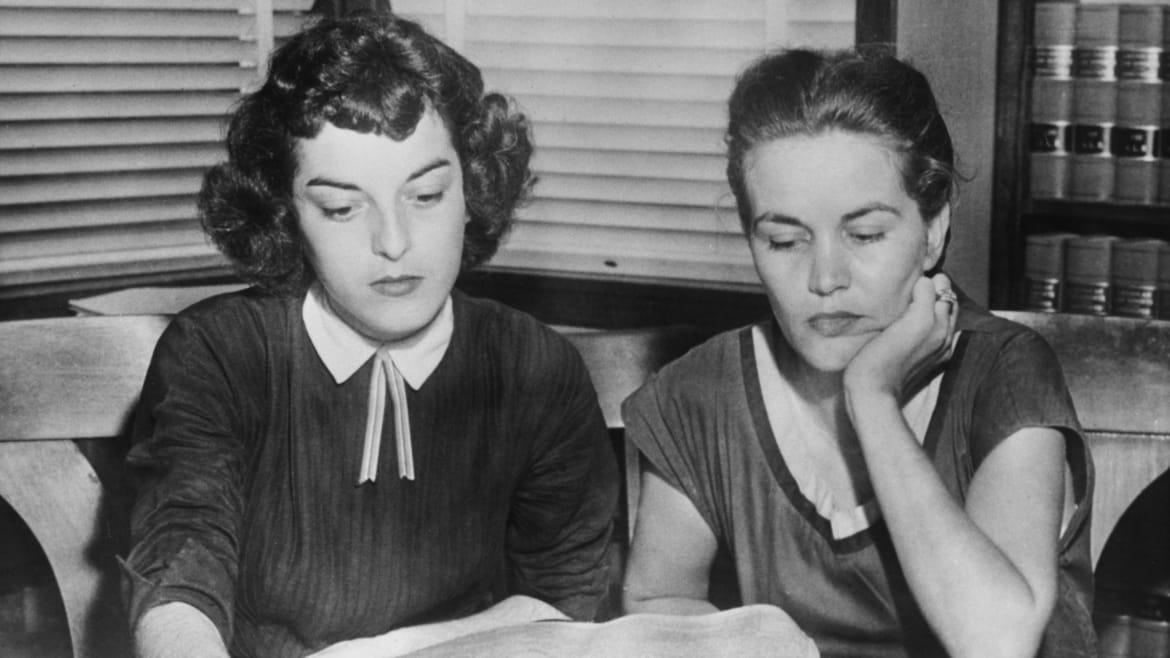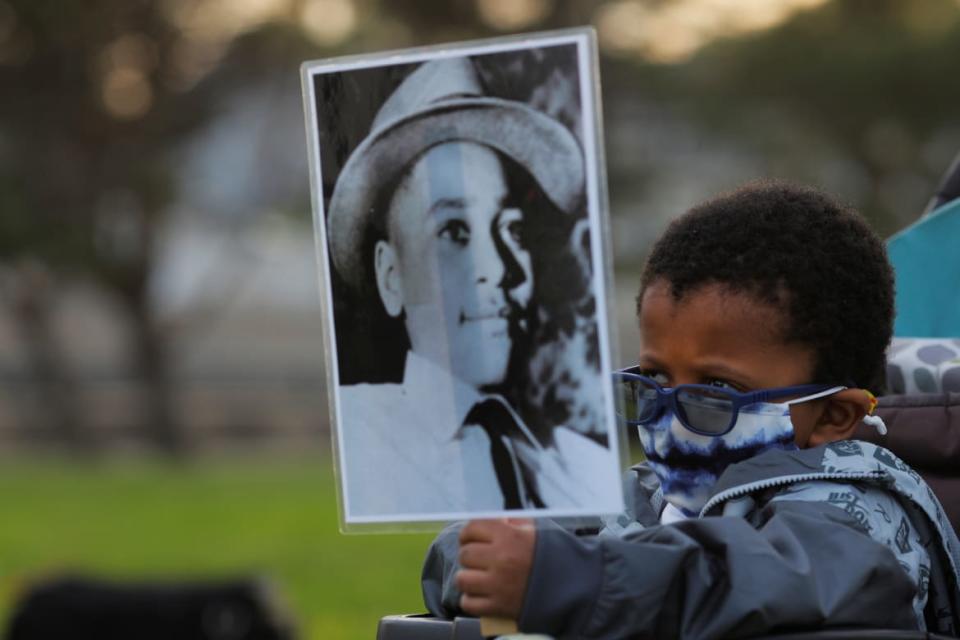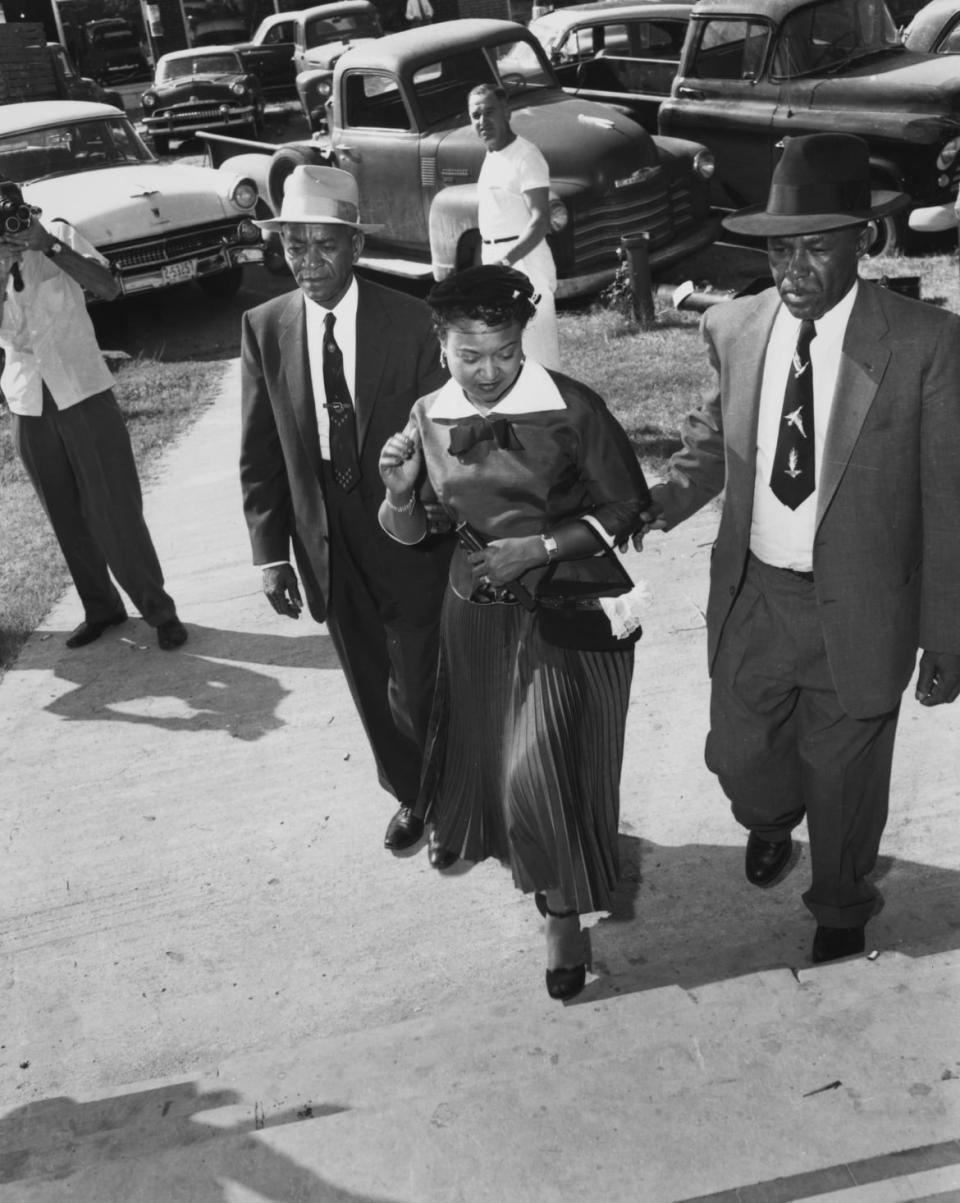Emmett Till’s Accuser Dies—Along With Any Last Chance of Justice

- Oops!Something went wrong.Please try again later.
- Oops!Something went wrong.Please try again later.
Carolyn Bryant Donham, the white woman who accused Emmett Till—a 14-year-old Black boy—of “wolf-whistling” at her in 1955, ending with his abduction, torture and fatal shooting, has died without facing punishment for her role in the lynching.
Donham died on Tuesday at 88, CNN reported, citing a coroner. She’d reportedly been battling cancer and died in hospice care in Louisiana.
Her death closes one of the darkest chapters in U.S. history. Donham was the last surviving person involved in Till’s slaughter, and represented the last chance for Till’s extended family to finally receive justice for his murder.
Instead, Donham’s death has ensured that no punishment was ever doled out for Till’s death, which sparked international outrage and proved integral to the civil right’s movement—with Rosa Parks saying she thought about Till as she famously refused to give up her seat on a bus in Montgomery, Alabama.
Devery Anderson, the author of Emmett Till: The Murder That Shocked the World and Propelled the Civil Rights Movement, told Mississippi Today that Donham’s death killed all hope that someone would finally be prosecuted for Till’s slaying.
“Now that can’t happen,” he said, adding: “It’s going to be a wound because justice was never done.”
Till’s family didn’t immediately comment on Donham’s death. Once news broke on Thursday morning, however, thousands of others made their feelings heard—with “Rest in Hell” trending on Twitter.

A protester holds up a photo of Emmett Till during a vigil for George Floyd in 2021.
Till was killed in Aug. 1955 when, having just turned 14, he left Chicago to visit family in Mississippi. It was there, in the small town of Money, where Donham—a 21-year-old mother of two—accused him of wolf-whistling at her as he left a store.
Donham, who’d lived her whole life in the segregated Deep South, is said to have told her husband, Roy Bryant, about the whistle and he became enraged. Days later, alongside his half-brother, J.W. Milam, the two men abducted Till and threw him in the back of their pickup truck. They were accused of torturing him and eventually shooting him dead, dumping his body in the Tallahatchie River.
Till’s mother, Mamie Till-Mobley, insisted that her son’s casket be left open at his funeral—attended by 50,000—to “let the world see what they did to my boy.”
Despite photos of Till's maimed body appearing in publications across the country, an all-white jury acquitted Bryant and Milam of all charges after less than an hour of deliberation—a verdict one juror said would’ve been reached quicker had jurors “not stopped for pop.” After their trial, they proudly confessed to killing Till, but neither ever served prison time.

Mamie Till outside the courthouse during the trial of those accused of her son's murder.
Donham flip-flopped repeatedly about what happened in the summer of 1955. She wrote in her memoir that she was terrified of Till and that he appeared fearless at the store and after his abduction—a drastic change from her initial recollection of what occurred, in which she said Till was “scared” when brought to her by her husband.
These conflicting claims—and a yearning from justice decades later—put pressure on Mississippi prosecutors to charge Donham with Till’s killing in 2007, but a grand jury declined to indict Donham on any charges. The same happened last summer, when the discovery of an old unsigned arrest warrant for Donham briefly opened up the possibility she’d be indicted on manslaughter and kidnapping charges. After seven hours of deliberation, however, a Mississippi grand jury again determined in August there wasn’t sufficient evidence to charge Donham.
Donham has reportedly apologized for what happened to Till, but not for her specific role in his death. Her memoir, which has been sealed in the Southern Historical Collection at the University of North Carolina at Chapel Hill, won’t be available to the public until 2036, but portions of it have been leaked to the media.
“I have always prayed that God would bless Emmett’s family,” Bryant wrote in the memoir, the Washington Post reported. “I am truly sorry for the pain his family was caused.”
Get the Daily Beast's biggest scoops and scandals delivered right to your inbox. Sign up now.
Stay informed and gain unlimited access to the Daily Beast's unmatched reporting. Subscribe now.
